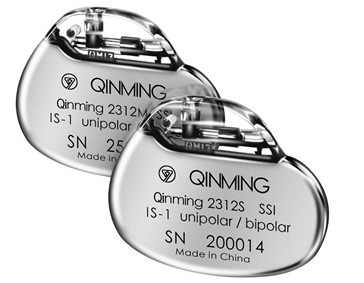Release date: 2014-07-23

Researchers said on the 16th that they injected a gene into the heart of the pig and successfully developed a "biological pacemaker" that can treat abnormal heart rhythms. If it proves to be effective in the human body, this "biological pacemaker" may one day replace the electronic pacemaker, which will impact an industry that has reached billions of dollars.
This achievement was published in the journal Science-Transformation Medicine. Eduardo Marwan, head of the research and director of the Cedars-Sayna Heart Institute in the United States, said at a telephone conference: "We used the minimally invasive method to develop a 'biological pacemaker' for the first time and confirmed this. The new pacemaker is enough to maintain the needs of everyday life. This is the first time 'reprogramming' heart cells in living animals to effectively treat the disease."
According to Marwan, a healthy heart relies on the naturally occurring "pacemaker cells" in the body, which are located in a tiny area of ​​the heart called the sinus node. The sinus node is like a metronome, which keeps the usual heartbeat at 60 to 90 times per minute. Once the sinus node function is abnormal, people will have abnormal heart rhythm.
In the latest study, Marwan et al. injected a gene called TBX18 into the heart of six pigs, transforming a heart cell that was not involved in controlling heart rhythm into a "pacemaker cell." The researchers said that these pigs had a heart rhythm abnormality called "complete heart block", but after receiving gene therapy, the heartbeat that should have slowed down returned to normal, and the effect lasted for two weeks.
The researchers point out that the pig's heart is similar in many ways to the human heart, so this technique called "somatic reprogramming" may apply equally to humans. The first to benefit from this may be two types of people, one with an arrhythmia that may be life-threatening infections implanted in an electronic pacemaker, and the other with a congenital heart block. The researchers said, "Maybe one day, we can save lives by injecting genes without implanting instruments."
The researchers said they will conduct more trials next, including studying the long-term effectiveness of the therapy. If all goes well, I hope to start relevant human clinical trials within 3 years.
Source: Technology Daily
Medical Ultrasonic Cleaner,Dental Ultrasonic Cleaner,Medical Grade Ultrasonic Cleaner,Ultrasonic Cleaner For Medical Instruments
ZHEJIANG FOMOS MEDICAL TECHNOLOGY CO.,LTD. , https://www.ifomos.com